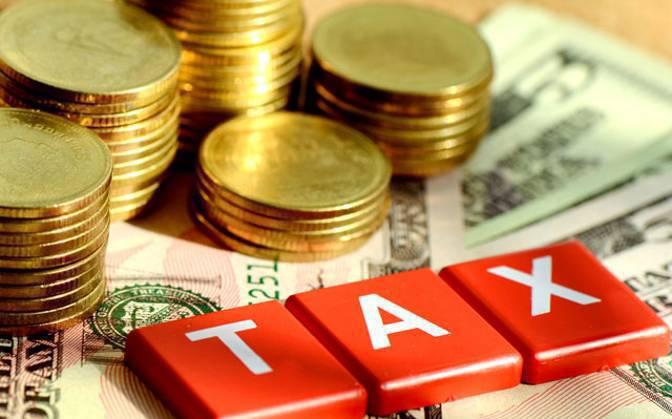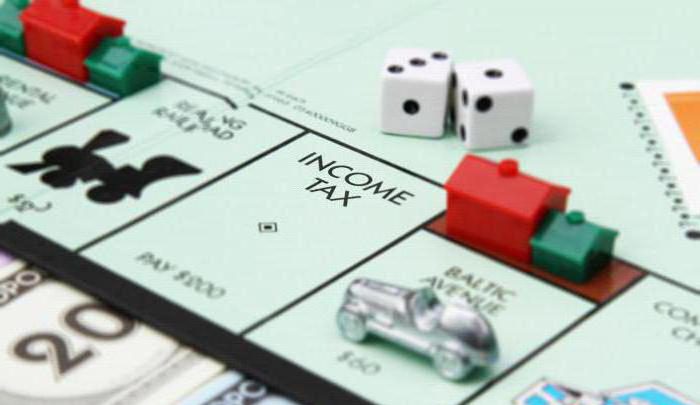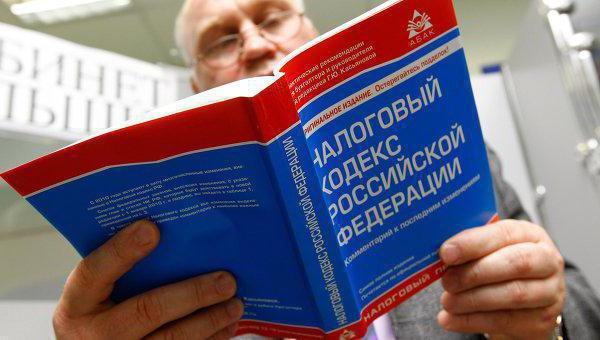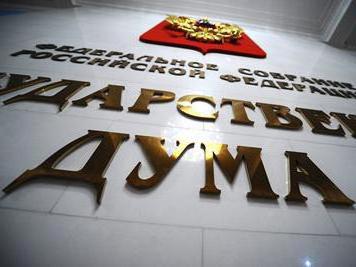Tax preferences and benefits are an integral part of the modern economy. Initially, this mechanism was conceived to activate the valuable industries of the country. Now often used to support strategic enterprises.
general information
 To successfully develop the country's economy, it is necessary to ensure the formation of an effective and adequate tax system. To do this, you need to take care of many different components. And tax preferences are an integral part of such a system. What are they?
To successfully develop the country's economy, it is necessary to ensure the formation of an effective and adequate tax system. To do this, you need to take care of many different components. And tax preferences are an integral part of such a system. What are they?
Tax preferences are a mechanism to reduce the burden on the activities of legal entities and individuals. Here it is necessary to note one important aspect. For many people, benefits and tax preferences are one and the same thing. This is actually not the case. What is the difference? When a privilege is introduced, it is always subject to control and administration, which is performed by tax authorities. They should always be declared in reporting, while preferences do not have a documentary display.
Why are preferences needed?
What is it, in general, has already been considered. Now let's talk about their practical benefits. Through preferences and benefits, the state can influence the processes that go on in the economy. They can have both a stimulating and an oppressive orientation. For example, there are privileges and preferences for modernization, reduction of environmentally harmful emissions, for the development of investment and innovation activities both in the entire economy and in individual industries. They are also sent to solve political and social problems in society.
What is the essence of preference?
 They must be considered as opportunities for the taxpayer to reduce their tax base or the amount of money that is paid to the state. For example, in some cases, 0% value added tax is charged on export operations. For a complete understanding, it will not be superfluous to read article 171 of the Tax Code of the Russian Federation. There is a curious statement that 0% is a mandatory practice. The taxpayer does not have the right to choose whether he uses this tool or not. 0% will be without exception. This situation is considered as a preference. You can additionally quote the words A. Balandina He formulated that tax preferences are the provision of advantages from the state to certain categories of taxpayers, which is expressed in the form of a decrease in the amount of payments that are mandatory. Moreover, this involves certain actions on the part of legal entities and individuals. In the above example, this is a takeover of foreign markets.
They must be considered as opportunities for the taxpayer to reduce their tax base or the amount of money that is paid to the state. For example, in some cases, 0% value added tax is charged on export operations. For a complete understanding, it will not be superfluous to read article 171 of the Tax Code of the Russian Federation. There is a curious statement that 0% is a mandatory practice. The taxpayer does not have the right to choose whether he uses this tool or not. 0% will be without exception. This situation is considered as a preference. You can additionally quote the words A. Balandina He formulated that tax preferences are the provision of advantages from the state to certain categories of taxpayers, which is expressed in the form of a decrease in the amount of payments that are mandatory. Moreover, this involves certain actions on the part of legal entities and individuals. In the above example, this is a takeover of foreign markets.
What is the essence of the tax benefit?
 So, we examined such an incentive tool as preferences, what it is, where they are used. Now let's talk about the second topic of the article. They can be considered from two positions:
So, we examined such an incentive tool as preferences, what it is, where they are used. Now let's talk about the second topic of the article. They can be considered from two positions:
- As an instrument of state policy.
- As an element of taxation.
The concept of "benefit" in the legislation is described in the first article of the Tax Code of the Russian Federation. It states that they are granted to certain categories of individuals and legal entities that are entitled to them according to the law. It is expressed in a decrease in the amount of obligatory payment (or its zeroing), which must be done in favor of the state. The tax credit should be considered as a tool that regulates the fiscal function.It should also be noted that in the Tax Code of the Russian Federation the definition from a legal point of view is not clearly formulated. Because of this, there is a slight expanse for the interpretation of the concept and, possibly, for abuse. It is considered in a slightly different way. So, we can cite the words of the previously mentioned Barulin S.V. that tax incentives are a set of rights, obligations and ways (full or partial) to reduce the obligations of individuals and legal entities to the state, which is established by legislation in the form of exemptions, discounts and loans in order to regulate the economy and / or solve public problems.
Legislation for preferences
 Fully provide all the regulatory documentation does not make sense. But to give a brief explanation and indicate where the optimization of tax benefits and other preferences is stipulated at the legislative level, it will not be superfluous. Those who are interested will be able to familiarize themselves with the primary documents adopted by the State Duma. Attention will be paid to taxes on value added, personal income and corporate profits.
Fully provide all the regulatory documentation does not make sense. But to give a brief explanation and indicate where the optimization of tax benefits and other preferences is stipulated at the legislative level, it will not be superfluous. Those who are interested will be able to familiarize themselves with the primary documents adopted by the State Duma. Attention will be paid to taxes on value added, personal income and corporate profits.
In the first case of preference, according to paragraphs. 9, paragraph 2, Article 146 of the Tax Code of the Russian Federation, are the Russian organizers of the Olympic and Paralympic Games. It should be noted that the modern tax system provides for about 200 various benefits and preferences. Due to such a large volume, not all of them will be given, but only the most significant ones. In the case of personal income, prizes received by athletes during participation in the Olympic and Paralympic Games are not taxed. This is stipulated in paragraph 20 of Article 217 of the Tax Code. In the case of corporate income tax, the preferences here are the same as those in the first paragraph. That is, Russian companies involved in the Olympic and Paralympic Games. However, this provision is stipulated, however, by a slightly different part of the legislation, namely, paragraphs. 36 p. 1 of article 251 of the Tax Code. These types of tax preferences now exist. Agree, there is an impression of a fairly strong limitation.
Legislation for tax benefits
 Therefore, two topics that are closely intertwined are considered in the framework of the article. Indeed, for many, tax preferences for small businesses and benefits are one and the same thing. Which, as we now consider, is not quite so. The review will be conducted in the same categories as before.
Therefore, two topics that are closely intertwined are considered in the framework of the article. Indeed, for many, tax preferences for small businesses and benefits are one and the same thing. Which, as we now consider, is not quite so. The review will be conducted in the same categories as before.
According to paragraphs. 1-2 paragraph 3 of Article 149 of the Tax Code of the Russian Federation, goods that are produced and sold by public organizations of persons with disabilities, and religious goods (including literature) are exempted from value added tax. Of course, these are not the only cases of relief. But let's talk about the social component for now, the commercial will continue. According to paragraph 20 of Article 217 of the Tax Code of the Russian Federation, taxes paid by religious organizations, as well as public organizations that provide services to people with disabilities and their medical treatment, are exempt from taxes on personal income. In the first case, there are certain doubts as to the appropriateness of such a decision.
The tax on the profit of organizations is not taken from religious communities (what a surprise) if they receive amounts for performing rituals. There are also concessions when paying for the work of disabled people.
Commercial tax incentives
If we talk about what is widespread, then here we can distinguish two important areas:
- Simplified tax systems. In this case, it refers to individual entrepreneurs, as well as legal entities whose turnover for the year does not exceed a certain amount. At the same time, a lower tax rate is removed from their income (a fairly common occurrence when they generally pay only something like a single contribution).
- Work in various technology parks and other similar organizational structures. In this case, a preferential tax regime is provided for when the size of rates (albeit not always substantially) is reduced, as well as certain bureaucratic reliefs.
Features of preferences
 The examples considered earlier cannot be taken as a complete description of the subject of the article. Let's look at investment tax preferences. In fact, this is a privilege that provides an exemption from income tax. But how is such a combination possible? The fact is that, despite the status of “tax preferences,” life examples suggest that to get them you need to collect a daddy of pieces of paper. Fortunately, there is a gradual shift in this direction. So, for example, before January 1, 2009, in order to get relief, it was necessary to conclude a contract with the Investment Committee. Targeted preferences are also widespread now. They are introduced to maintain a certain direction (for example, the sports organizations discussed above).
The examples considered earlier cannot be taken as a complete description of the subject of the article. Let's look at investment tax preferences. In fact, this is a privilege that provides an exemption from income tax. But how is such a combination possible? The fact is that, despite the status of “tax preferences,” life examples suggest that to get them you need to collect a daddy of pieces of paper. Fortunately, there is a gradual shift in this direction. So, for example, before January 1, 2009, in order to get relief, it was necessary to conclude a contract with the Investment Committee. Targeted preferences are also widespread now. They are introduced to maintain a certain direction (for example, the sports organizations discussed above).
Who does not have preferences?
There is a list of legal entities that, subject to certain conditions, cannot claim relief. It:
- Taxpayers operating in the territory of a special economic zone. Why? The fact is that they already have territorial preferences.
- Taxpayers producing and / or selling excisable goods. These include all types of alcohol and tobacco products.
- Special tax regime taxpayers (simplified system), producers of agricultural products and rural consumer cooperatives.
Conclusion
 The topic is quite interesting and clearly goes beyond the scope of the article. One could also talk about the functional preferences that are provided to those who perform certain tasks and tasks. It will not be superfluous to mention the exemption from scheduled inspections, which is valid from 2016 to 2018. After all, even if this is not direct, but just an indirect preference, but it helps minimize bureaucracy on the part of the state.
The topic is quite interesting and clearly goes beyond the scope of the article. One could also talk about the functional preferences that are provided to those who perform certain tasks and tasks. It will not be superfluous to mention the exemption from scheduled inspections, which is valid from 2016 to 2018. After all, even if this is not direct, but just an indirect preference, but it helps minimize bureaucracy on the part of the state.